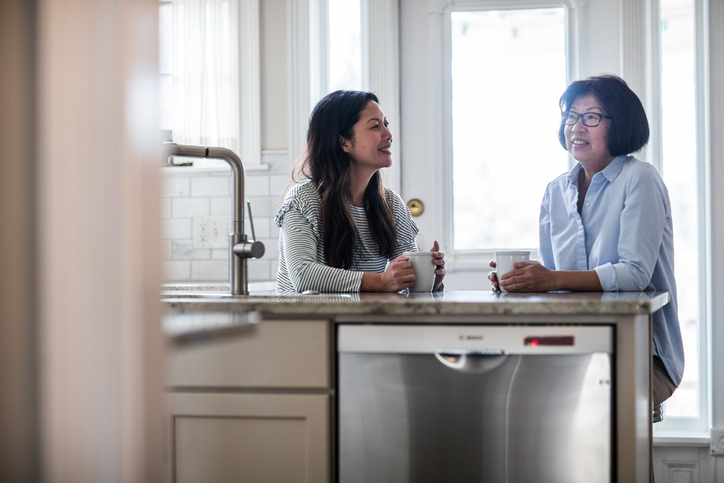4 health questions you should ask your mum

The characteristics you inherit from your parents run deeper than physical traits such as eye colour or the shape of your nose. Genetics can also play a role in determining risk factors for chronic health diseases.
GP, Dr Sally Cockburn, a leading health commentator shares with 2GB why it’s important to know your medical history, and some health-related questions every Australian should ask their mum.
What’s our history with disease?
“Obviously, not all diseases are inherited but some are, and it’s only been in recent years that people talk openly about their conditions – especially if they perceive it as embarrassing,” Dr Sally tells 2GB.
“But as mothers we aim to improve the health of our next generation and passing on the family health history is an important part of that.
“We’re more familiar about diseases such as breast cancer in the family but what about less familiar conditions that may be inherited?
Have you been checked for osteoporosis and what does that mean for me?
Osteoporosis is known to have genetic links and if your mum or dad have been diagnosed with osteoporosis, or there is a history of family fractures, there may be implications for you.1
“Why risk it when there is so much you can do to prevent The Big O?”, explains Dr Sally.
“For postmenopausal women, osteoporosis is more common than breast and cervical cancer combined.”2,3
“Given bone mass peaks around 30, there’s no time to waste – if mum hasn’t already done so, she should be encouraged to talk to her GP about having a DEXA (bone density) scan.”1
Oestrogen protects bones, unless you personally have some other factors affecting bone health (for example early menopause, cancer treatment, some thyroid or kidney conditions) it is recommended to start having bone density tests if you’re over 50 and have had a fracture, or over the age of 70.1,4
“Weak bones mean even the smallest fall could cause a break, which may lead to a loss of mobility, loss of confidence and isolation. Osteoporosis is serious, but it’s also treatable.”1,5,6
“I must admit I suggest that my patients consider having one around 50 (or menopause) as a base line and I then monitor them from there depending on the result,”1 tells Dr Sally.
Have you been checked for heart disease?
Heart health is another topic we should be having a conversation about with our mums. Discussing risk factors is worthwhile for both of you.
“In short, family history of heart disease, smoking, diabetes, high blood pressure and high cholesterol are risk factors,”7 says Dr Sally.
“Other than family history all these risk factors are within your control. Seeing your GP for a heart health check is easy.”7
Can we have a conversation about falls risk?
It’s hard to face getting old and the “f word” (falls) starts to become a risk reality. It’s never too early to start having the conversation with parents about reducing falls risks and trip hazards around the home.
“It may seem harsh to the DIY person but getting on the roof and climbing ladders should be reconsidered over a certain age,” says Dr Sally. “By 65, bone and muscle strength as well as coordination isn’t what it used to be.”
It’s time to be sensible, especially if your bone health is not up to scratch. However, that curly rug edge or rickety back stairs could do with attention.
“This topic needs to be approached with sensitivity as we older folk don’t like the idea of not having control – I argue that keeping independence depends on risk reduction,” adds Sally.
“Health needs to be an open and continuing discussion within the trusted family. It should be about maximising independence and living well.”















